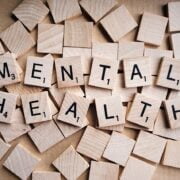
How to build resilience and improve mental health outcomes
Mental health and resilience are two crucial aspects of overall well-being. Mental health refers to a person’s emotional, psychological, and social well-being, while resilience is the ability to bounce back from adversity and cope with life’s challenges. Both mental health and resilience play a significant role in our daily lives and can greatly impact our overall quality of life.
Addressing mental health issues and building resilience are essential for several reasons. Firstly, mental health issues can significantly impact a person’s ability to function and enjoy life. Conditions such as depression, anxiety, and stress can affect one’s relationships, work performance, and overall happiness. By addressing these issues, individuals can improve their mental well-being and lead more fulfilling lives.
Secondly, building resilience is crucial because it helps individuals navigate through difficult times. Life is full of challenges, setbacks, and unexpected events. Having resilience allows individuals to adapt to these situations, recover from setbacks, and continue moving forward. Resilience helps individuals maintain a positive outlook on life and cope with stress more effectively.
Key Takeaways
- Mental health and resilience are important for a better quality of life.
- Resilience refers to the ability to bounce back from adversity, while mental health encompasses emotional, psychological, and social well-being.
- Building resilience can improve mental health outcomes and help individuals cope with stress and adversity.
- Techniques for building resilience include seeking professional help, social support, self-care, positive thinking, and mindfulness.
- It is important to prioritize mental health and resilience in order to lead a fulfilling life.
Defining Resilience and Mental Health: What Do They Mean?
Resilience can be defined as the ability to bounce back from adversity, adapt to change, and cope with stress. It involves having a positive mindset, being flexible in the face of challenges, and having strong problem-solving skills. Resilience is not about avoiding or denying difficult emotions; instead, it is about acknowledging them and finding healthy ways to cope.
On the other hand, mental health refers to a person’s emotional, psychological, and social well-being. It encompasses how individuals think, feel, and behave in various situations. Good mental health allows individuals to handle stress effectively, form positive relationships, make sound decisions, and cope with the ups and downs of life.
Resilience and mental health are interconnected. Building resilience can improve mental health outcomes, as it helps individuals develop effective coping skills and manage stress more effectively. Similarly, good mental health can enhance resilience by providing individuals with the emotional stability and clarity of mind needed to navigate through challenging situations.
Understanding the Relationship Between Resilience and Mental Health
Resilience has a significant impact on mental health outcomes. When individuals have high levels of resilience, they are better equipped to handle stress, setbacks, and adversity. They are more likely to bounce back from difficult situations and maintain a positive outlook on life. Resilience helps individuals develop effective coping strategies, which can prevent the onset or exacerbation of mental health issues.
On the other hand, mental health can also influence resilience. Individuals with poor mental health may struggle to cope with stress and adversity, leading to a decrease in resilience. Conditions such as depression and anxiety can make it challenging for individuals to bounce back from setbacks and maintain a positive mindset. Therefore, addressing mental health issues is crucial for building resilience and improving overall well-being.
The Benefits of Building Resilience for Mental Health Outcomes
Building resilience has several benefits for mental health outcomes. Firstly, it improves coping skills. Resilient individuals are better equipped to handle stress and adversity, as they have developed effective strategies for managing difficult emotions and situations. They are more likely to seek support when needed and engage in healthy coping mechanisms such as exercise or mindfulness.
Secondly, building resilience enhances stress management. Resilient individuals are more likely to view stress as a challenge rather than a threat. They have the ability to reframe stressful situations and find solutions instead of becoming overwhelmed by them. This mindset shift can significantly reduce the negative impact of stress on mental health.
Lastly, building resilience improves emotional regulation. Resilient individuals have a better understanding of their emotions and are able to regulate them effectively. They are less likely to be overwhelmed by negative emotions such as anger or sadness and can maintain a more balanced emotional state. This emotional stability contributes to better mental health outcomes.
Techniques for Building Resilience and Improving Mental Health
There are several techniques that individuals can use to build resilience and improve mental health. One effective technique is exercise and physical activity. Regular exercise has been shown to reduce symptoms of depression and anxiety, improve mood, and increase overall well-being. Engaging in physical activity releases endorphins, which are natural mood boosters, and provides a healthy outlet for stress.
Another technique is mindfulness and meditation. Mindfulness involves being fully present in the moment and non-judgmentally observing one’s thoughts and emotions. It has been shown to reduce stress, improve focus, and enhance overall well-being. Meditation is a practice that involves focusing one’s attention and eliminating the stream of thoughts that often contribute to stress and anxiety.
Cognitive-behavioral therapy (CBT) is another effective technique for building resilience and improving mental health. CBT helps individuals identify negative thought patterns and replace them with more positive and realistic ones. It also teaches individuals effective coping strategies for managing stress and challenging situations. CBT can be done with the help of a therapist or through self-help resources.
Identifying and Addressing Mental Health Issues: Seeking Professional Help

It is important to seek professional help when dealing with mental health issues. Mental health professionals are trained to assess, diagnose, and treat various mental health conditions. They can provide individuals with the support, guidance, and resources needed to improve their mental well-being.
There are different types of mental health professionals that individuals can seek help from. Psychiatrists are medical doctors who specialize in the diagnosis and treatment of mental health disorders. They can prescribe medication if necessary and provide therapy.
Psychologists are professionals who have a doctoral degree in psychology. They can provide therapy, conduct psychological assessments, and offer support for various mental health issues.
Licensed professional counselors (LPCs) and licensed clinical social workers (LCSWs) are trained to provide therapy and support for individuals with mental health issues. They can help individuals develop coping skills, manage stress, and improve overall well-being.
The Role of Social Support in Building Resilience and Improving Mental Health
Social support plays a crucial role in building resilience and improving mental health. Having a strong support system can provide individuals with the emotional support, encouragement, and resources needed to navigate through difficult times.
Social support has been shown to have a positive impact on mental health outcomes. It can reduce symptoms of depression and anxiety, improve self-esteem, and enhance overall well-being. Social support can come from various sources, including family, friends, colleagues, or support groups.
Building a support system involves actively seeking out and nurturing relationships with individuals who provide positive and supportive influences. It is important to surround oneself with people who uplift and encourage, rather than those who bring negativity or drain one’s energy.
Strategies for Coping with Stress and Adversity: The Importance of Self-Care
Self-care is crucial for improving mental health and building resilience. Self-care involves taking intentional actions to prioritize one’s physical, emotional, and mental well-being. It is about recognizing one’s needs and making choices that promote self-nurturing and self-compassion.
Self-care practices can include activities such as getting enough sleep, eating nutritious meals, engaging in hobbies or activities that bring joy, setting boundaries, and practicing relaxation techniques. It is important to prioritize self-care and make it a regular part of one’s routine.
Setting boundaries is also an important aspect of self-care. It involves recognizing one’s limits and communicating them to others. Setting boundaries helps protect one’s mental health by preventing burnout and ensuring that one’s needs are met.
The Importance of Positive Thinking and Mindfulness for Mental Health and Resilience
Positive thinking and mindfulness are powerful tools for improving mental health and building resilience. Positive thinking involves focusing on the positive aspects of life, cultivating gratitude, and reframing negative thoughts into more positive ones. It has been shown to reduce symptoms of depression and anxiety, improve self-esteem, and enhance overall well-being.
Mindfulness, as mentioned earlier, involves being fully present in the moment and non-judgmentally observing one’s thoughts and emotions. It helps individuals develop a greater awareness of their thoughts and emotions, which can lead to better emotional regulation and stress management.
Practicing positive thinking and mindfulness can be done through various techniques such as journaling, affirmations, or guided meditation. These practices help individuals develop a more positive mindset, reduce stress, and improve overall mental well-being.
Building Resilience and Improving Mental Health for a Better Quality of Life
In conclusion, mental health and resilience are crucial for overall well-being. Addressing mental health issues and building resilience can greatly improve one’s quality of life. Building resilience improves coping skills, stress management, and emotional regulation. Techniques such as exercise, mindfulness, and cognitive-behavioral therapy can help individuals build resilience and improve mental health outcomes.
Identifying and addressing mental health issues is important, and seeking professional help can provide individuals with the support they need. Social support plays a significant role in building resilience and improving mental health outcomes. Strategies such as self-care, positive thinking, and mindfulness are essential for maintaining good mental health and building resilience.
It is important to prioritize mental health and resilience-building practices for a better quality of life. By taking care of our mental well-being and developing resilience, we can navigate through life’s challenges more effectively, maintain a positive outlook, and enjoy a more fulfilling life.
If you’re looking for more resources on building resilience and improving mental health outcomes, be sure to check out Wave Magnets. They offer a wide range of articles and information to help you navigate life’s challenges and strengthen your mental well-being. One article that complements the topic is “The Power of Positive Affirmations: How to Rewire Your Mind for Resilience.” This insightful piece explores the science behind affirmations and provides practical tips on incorporating them into your daily routine. Discover more valuable insights at Wave Magnets.
FAQs
What is resilience?
Resilience is the ability to adapt and cope with stress, adversity, and challenges in life.
Why is resilience important for mental health?
Resilience helps individuals to bounce back from difficult situations and maintain good mental health outcomes.
What are some ways to build resilience?
Some ways to build resilience include practicing self-care, developing a support system, setting realistic goals, and practicing mindfulness.
What is self-care?
Self-care refers to activities and practices that individuals engage in to take care of their physical, emotional, and mental health.
What is a support system?
A support system is a group of individuals who provide emotional and practical support to an individual during difficult times.
What are realistic goals?
Realistic goals are goals that are achievable and within an individual’s capabilities.
What is mindfulness?
Mindfulness is the practice of being present and fully engaged in the current moment, without judgment or distraction.


















